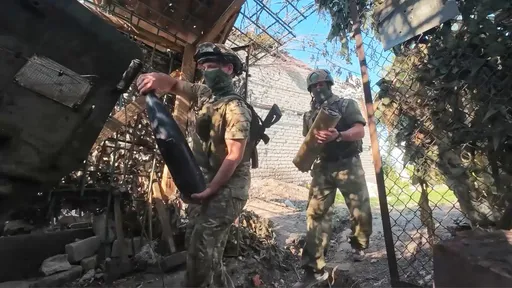South Sudan’s President Salva Kiir and rebel leader Riek Machar met in Ethiopia’s capital Addis Ababa on Wednesday, the first time they have met since 2016, amid efforts to end a five-year civil war, shaking hands but making no public comments.
Kiir and Machar met individually with Ethiopia's Prime Minister Abiy Ahmed before the three sat down together, South Sudanese opposition party officials and western diplomats said.
Machar fled South Sudan after new fighting erupted in the capital in July 2016, ending a brief attempt at peace in which he returned to his role as Kiir's deputy. He later was put under house arrest in South Africa, whose presidency on Wednesday welcomed Machar's participation in the talks.
"The PM Abiy Ahmed hosted a private dinner to President Salva Kiir & Dr Rieck Machar together," Ahmed's Chief of Staff Fitsum Arega said on his Twitter account.
"Faced with the continued suffering in South Sudan, Ethiopia simply can’t stand by. With more work, a peaceful future is possible."
South Sudan President Salva Kiir and opposition leader Riek Machar went into a closed door meeting at the Ethiopian prime minister's office and continued meeting into the night and were expected to continue discussions on Thursday in Ethiopia. The neighbouring country invited them for talks as pressure grows to end a conflict that has killed tens of thousands of people and displaced close to 3 million people, creating Africa's largest refugee crisis since the 1994 Rwanda genocide.
A Kiir spokesman, Ateny Wek Ateny, has said "anything that brings peace in South Sudan is wanted."
“This is a last-ditch attempt but a serious one to broker a deal,” said Alan Boswell, an independent researcher on South Sudan.
“The concern is that it’s not at all obvious how they will prevent the catastrophe of 2016 from recurring, since the framework for the deal is not substantially different than it was in the 2015 deal.”
Activists on Wednesday urged the two sides to reach a sustainable peace agreement.
“At this critical moment where our nationhood and our collective future is at stake, we remind you of your moral and political obligations to meaningfully reconcile with each other as well as with all other political leaders in our country," South Sudanese Civil Society Forum said in a statement.
Residents of Juba, the capital of South Sudan, are also hopeful for a peaceful outcome.
The meeting, attended by Ethiopian Prime Minister Abiy Ahmed, was mediated by the East African regional bloc that has led several rounds of failed peace talks. The Intergovernmental Authority on Development last month called for a meeting of Kiir and Machar ahead of an African Union summit on July 1 in Mauritania, saying it would inform a "final decision" on Machar's participation in the peace process.
Both sides in South Sudan's civil war have been accused of widespread abuses such as gang rapes against civilians, including along ethnic lines. A number of South Sudan officials have been accused by human rights groups of profiting from the conflict and blocking the path to peace.
Early this month the U.N. Security Council adopted a United States-sponsored resolution that threatens an arms embargo on South Sudan and sanctions against six people, including the country's defense chief, if fighting doesn't stop and a political agreement fails to materialise. The resolution asks Secretary-General Antonio Guterres to report to the council on that by June 30.
Regional bloc Intergovernmental Authority on Development (IGAD) also has threatened to submit "punitive measures" against violators of December's failed cease-fire in South Sudan, though sanctions would need approval by the bloc's heads of state and government.
Coletta Wanjohi in Addis Ababa says there hasn't been enough pressure on the leaders to end the civil war in South Sudan until now.
The official scope of the talks is broad – to build bridges between the two – but analysts say the outcome remains unclear given their notoriously volatile relationship and entrenched positions.
The two warring leaders travelled to Addis at the invitation of Ethiopia's new Prime Minister Abiy, who also chairs IGAD, the regional bloc that has taken the lead in thus-far fruitless peace negotiations.
Abiy "will call upon the two leaders to narrow their gap and work for the pacification of South Sudan and relieve the burden of death and uprooting of South Sudanese people," Meles Alem, Ethiopian foreign ministry spokesman, said.
IGAD heads of state are due to meet in Addis, on Thursday, hoping to get peace talks back on track.
Despite the pressure, observers say Kiir has little incentive to make concessions to his rivals.
His soldiers are winning militarily, while the opposition is more fractured than ever before.
International frustration
The meeting in Addis Ababa comes against a background of growing international frustration.
In May, the UN Security Council gave the two warring sides a month to reach a peace deal or face sanctions.
Washington was a critical backer of South Sudan during its separation from Sudan, and remains Juba's biggest aid donor.
But a top US official earlier this month threatened parties on both sides of the conflict with sanctions after a report from a US foundation, The Sentry, said South Sudanese elites were profiting from human rights abuses.























